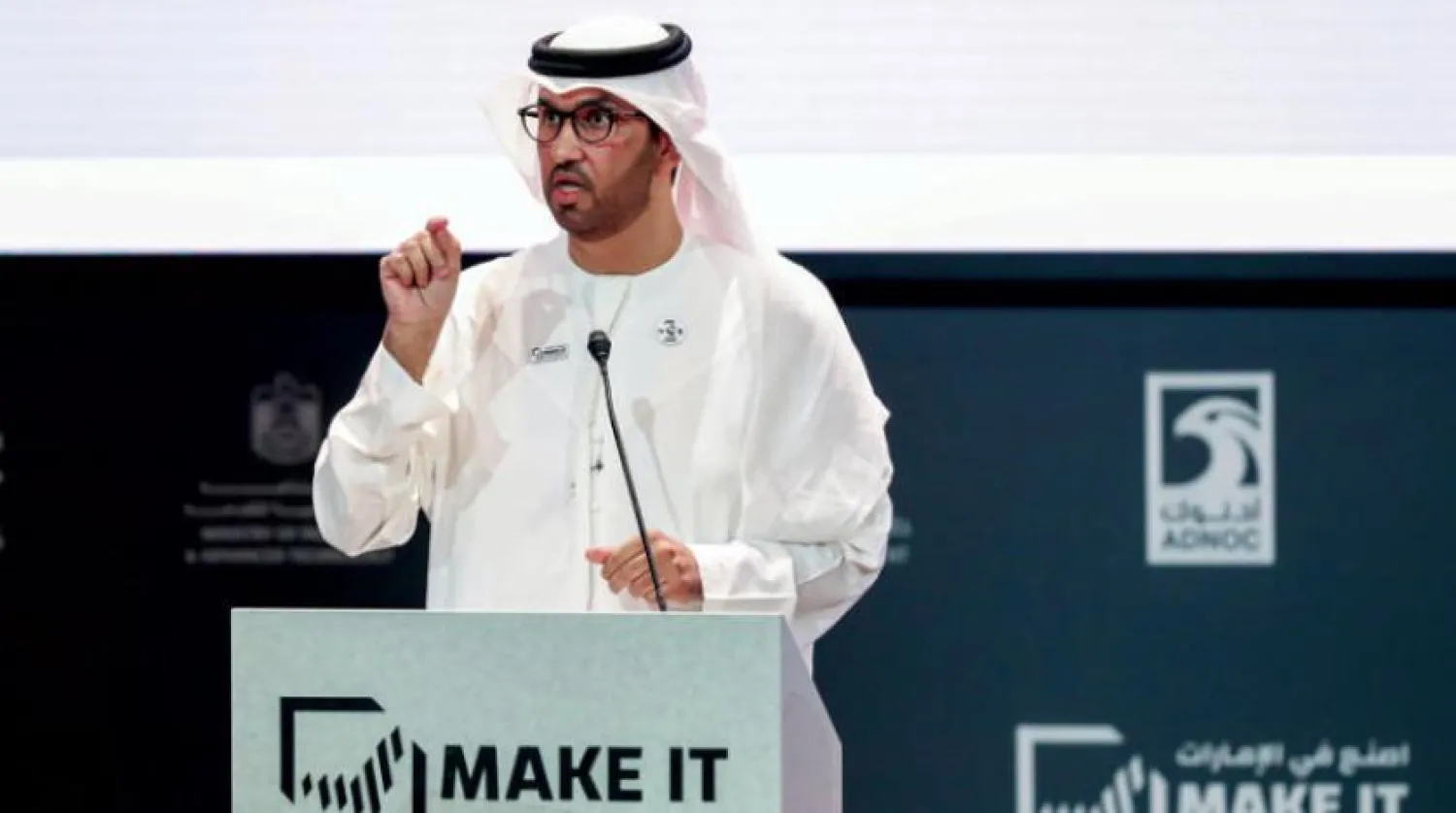UAE's Minister of Industry and Advanced Technology Sultan al-Jaber said that the COVID-19 pandemic and recent geopolitical challenges disrupted supply chains and affected the global economy, "an experience from which we extracted many lessons."
The Minister explained that one of the most important lessons is that "regardless of global economic conditions, enhancing self-sufficiency and resilience in vital sectors such as food, healthcare, and the sectors critical to ensuring business continuity and economic growth, is critical."
Speaking at the "Make it in the Emirates" Forum, Jaber explained that the Ministry focused on a set of strategic axes, aiming to create an attractive business environment for local and international industrial investors, support the growth of national industries, enhance their competitiveness and empower innovation and the adoption of advanced technologies.
It also aims to strengthen the UAE's position as a global destination for industries of the future.
The Ministry encourages financial institutions to offer competitive financing and administrative services based on quality, efficiency, and transparency as well as contribute to supporting the development of laws and legislations that help support and protect the national products.
"Our objective is to safeguard our national progress, leverage the legislative system, attract investments to our industrial sector, support local manufacturing, and create growth opportunities, with an ultimate goal of empowering our national economy and increasing the industrial sector's contribution to our GDP to more than AED300 billion by 2031," Emirates News Agency (WAM) quoted Jaber as saying.
The Minister indicated that a critical enabler of the work has been to research and identify priority sectors to achieve goals, which include food and agriculture, pharmaceuticals, petrochemicals, heavy industries such as aluminum and iron, defense, electrical equipment and appliances, and future industries like space and clean energy such as hydrogen.
He added that last May witnessed the launch of an Industrial Partnership between the UAE, Egypt, and Jordan.
The partnership leverages the competitive advantages of each of these nations to promote industry growth and achieve sustainable economic development.
"Most importantly, the partnership will provide new export opportunities for manufacturers and focuses on five promising industrial sectors, including food and agriculture, fertilizers, pharmaceuticals, textiles, minerals, and petrochemicals."
The Minister announced that large national companies allocated nearly AED110 billion potential purchase agreements for local manufacturers.
The forum's sessions and exhibition will provide details of these products and industrial investment opportunities, and the unprecedented move will create opportunities for the growth of the national industrial sector, adding at least AED6 billion annually to the GDP.
Meanwhile, ADNOC announced plans worth AED70 billion for products that can be manufactured locally.
During the Forum, ADNOC signed agreements for local manufacturing opportunities worth AED21 billion with UAE and international companies.
ADNOC aims to purchase these products between 2022 and 2030 and invites the private sector to take advantage of this pipeline and invest in the UAE's manufacturing sector to produce the products locally.









